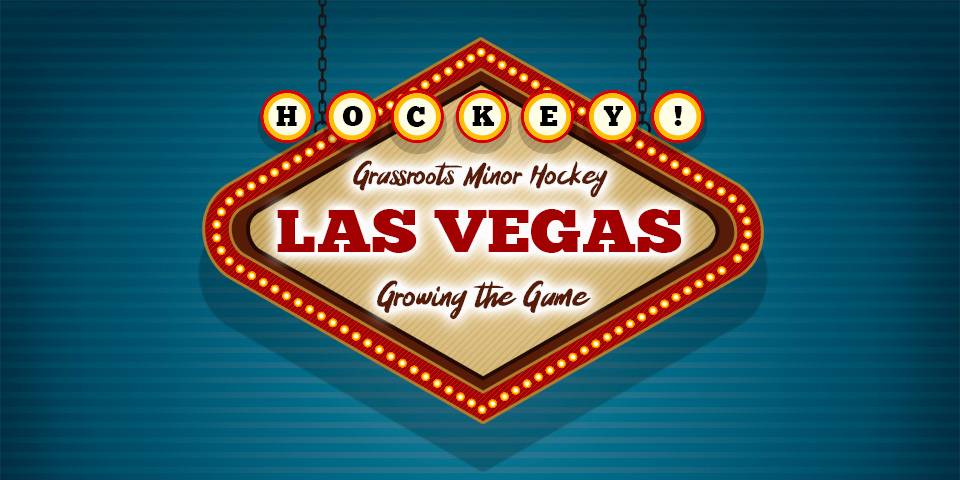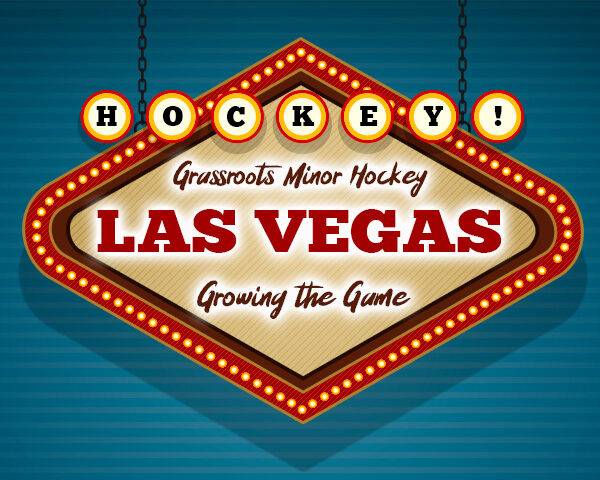Part 1 in our series on minor hockey in Las Vegas
When it comes to NHL success stories, few franchises can measure up to the instant winning formula that was concocted by the Vegas Golden Knights. They were winners from the moment they stepped on the ice.
Vegas finished in first place as a first-year expansion franchise. The Golden Knights established NHL records for the most wins (51) and points (109) compiled by a first-year franchise. They joined the St. Louis Blues as the only NHL teams to reach the Stanley Cup final in their first year of existence. Though they lost to the Washington Capitals in five games, the Golden Knights managed to win a game in the final series, something the Blues weren’t able to do when they were swept by the Montreal Canadiens in the 1967-68 final.
Into their fourth season, the Golden Knights are just one of 19 teams in NHL history to qualify for the playoffs in each of their first four seasons. They were an immediate smash hit and they are working hard to ensure that the future — both the short-term and long-term variety — will be equally fruitful.
“To see the excitement and the enthusiasm in this market has been really rewarding,” said former NHL goalie Darren Eliot, who serves as Vice President of Hockey Programming and Facility Operations for the Golden Knights. “Now we’ve got to keep on focusing.”
Certainly, the on-ice success story of the Golden Knights has helped to create a buzz about the game throughout the Nevada desert. But it’s not just about winning on the ice. From Day 1 for the Golden Knights, it’s been about winning over the people of Las Vegas, converting them into hockey lifers.
And that doesn’t start with a capacity crowd on game night. Sure, that type of environment develops excitement but it’s more of the instant gratification variety, getting caught up in the atmosphere and wanting to be part of that environment. But it’s a strong grassroots youth hockey program that creates hockey fans forever.
The Golden Knights recognized this fact of life from the outset.
“It’s really a long-term investment,” Eliot said.
“The parents are now hockey fans in the moment but their kid is the one who is playing hockey and has an affinity for the game.”
Over the course of his career, Eliot, 59, has frequently found himself situated in what would be termed emerging hockey markets. He tended goal for the Los Angeles Kings from 1984-87. In front-office positions, he’s worked for the Anaheim Ducks when they were still Mighty and for the Atlanta Thrashers.
“I never set out to get my doctorate degree in non-traditional hockey markets,” Eliot said. “ It’s just where the opportunity led me and kind of interested me and now this has become broad based for me.”
Misha Donskov, director of hockey operations for the Golden Knights, worked with Eliot in Atlanta.
“We had some really groundbreaking work done there,” Eliot said of his time in Georgia. “We did a ton of good things for youth hockey, hockey development, and brand extension.”
They also discovered that all of the hard work in a new market doesn’t add up to much if it isn’t backed up by the opportunity for kids to get out and play the game.
Eliot in particular remembered a conversation he had with NHL Commissioner Gary Bettman, who was leaving Atlanta and headed to Nashville while on a tour of NHL markets.
I said ‘Hey Gary do you ever drive to Nashville?’” Eliot recalled. “I said, ‘You know how many rinks you pass between Atlanta and Nashville? I’ll tell you the answer — zero.’
“Granting teams to these markets with no infrastructure, you just become an entertainment option, a novelty. In the 20 years since, (the NHL) has really recognized that you have to put in the money and the commitment.”
“It’s about building the infrastructure, because that’s the bigger piece. They’ve all figured that out.”
It’s hard to grow the game if the roots have nowhere to sprout and blossom.
In Vegas, youth programs such as learn to skate, learn to play and skills training are all designed to lead kids into playing organized hockey, whether that be house league or travel. Backing up these on-ice programs is a commitment from team ownership to provide the facilities and sponsors to deliver the financial wherewithal to make it all happen.
“It’s a long-term thing and it all has to come together and you don’t get that without putting in the effort to develop hockey programs in the area,” Eliot said. “That’s the bottom line.”
In the past, most youth hockey programs in non-traditional markets were generally started by Canadians who stayed in the area after their playing days, but there wasn’t any direct link to the team. They were blips on the radar that eventually faded away.
In Vegas, they recognize that long-term success for the franchise isn’t built merely around succeeding on the ice. By building a strong youth hockey program and investing in hockey futures, they are assembling a fan base for years to come. And if you get the kids on board, the adults are sure to follow.
“Seeing families and kids take to the game that we grew up with in Canada taking it for granted, I’m loving every minute of it,” Eliot said.
The Golden Knights have built a youth hockey program from the ground up, starting with Learn to Skate through to boys and girls rep teams.
Las Vegas minor hockey has grown tremendously since the Golden Knights arrived thanks to the NHL club’s investment in building new rinks in Nevada.
Las Vegas minor hockey has grown tremendously since the Golden Knights arrived and began to build a strong grassroots youth hockey program.




